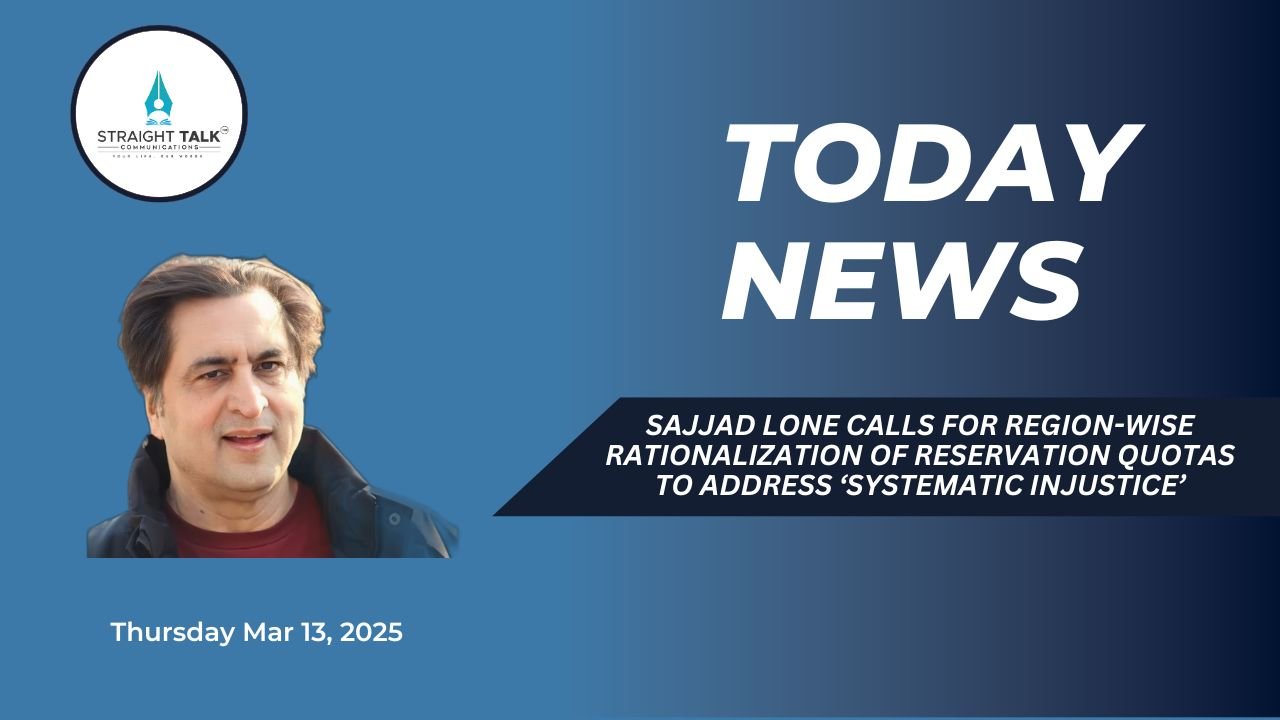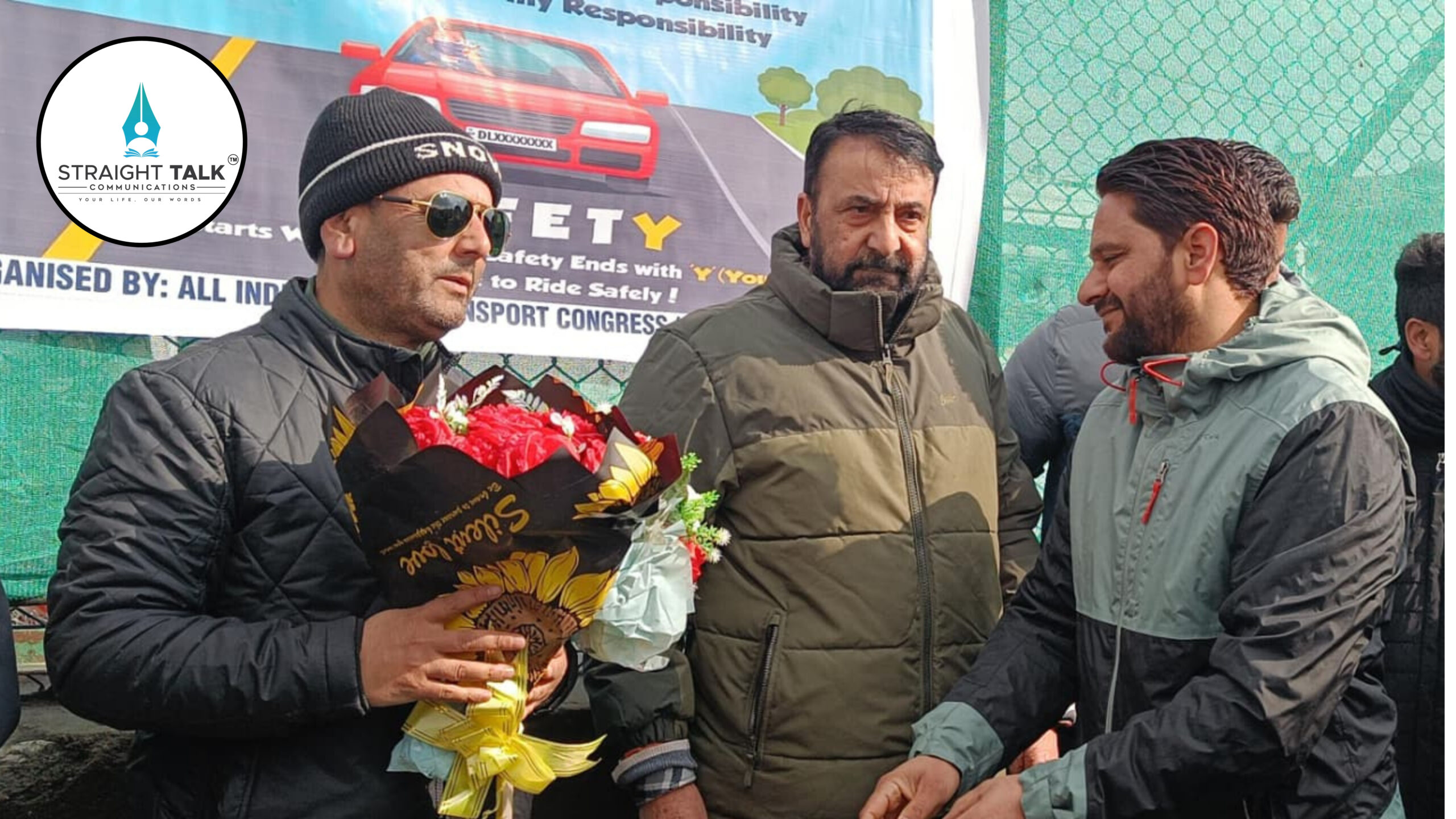Sajjad Lone calls for region-wise rationalization of reservation quotas to address ‘systematic injustice’

STC NEWS DESK
SRINAGAR 13 : Kashmiri-speaking residents are facing the growing marginalization due to a deeply inequitable reservation system, reveals a data, which further shows a systematic decline in the representation of Kashmiri speakers in prestigious positions in Jammu and Kashmir.
Jammu and Kashmir Peoples Conference President and MLA Handwara Sajad Lone highlighted this in his speech in the Legislative Assembly today.
He presented a data-driven argument asserting that the current reservation framework is creating a form of “social disempowerment” for the community.
“The overall mental makeup of schools and children has gone through a lot of turmoil. Kashmiri-speaking people form a distinct ethnic group, and we are seeing that with every passing day, in every exam, fewer of them are making it—not because they are incompetent, but because their entry space is being choked,” Lone said in the Assembly.
In his data-driven speech, the JKPCC Chief revealed a concerning trend in Kashmir Administrative Service (KAS) recruitment. Quoting the data, he said, Kashmiri representation in KAS selections has declined sharply over recent years—constituting only 19% of successful candidates in 2023, down from 25% in 2022 and 17% in 2021.
Explaining the reservation system, he said, “8% is for Scheduled Castes, but in Kashmir, there are no SCs. So it is an additional burden on us. Similarly, regarding Scheduled Tribes, 40% of ST reservation benefits go to Jammu and 60% to Kashmir, creating a situation where Jammu comes under reservation, and Kashmiri speakers come under open merit.”
Lone framed the issue not as a criticism of any particular government but as a deeply rooted societal challenge requiring immediate attention. “It looks like a social reordering… This is our societal issue, not a point-scoring debate,” he stated.
He further stated that “for the last 30 years, the discourse from New Delhi has been to send a message to Kashmiri speakers—to teach us a lesson, to show Kashmiris their place.” He questioned, “If the current system persists, I must ask you to put a hand on your heart and tell us—if you return here in 20 years, how many KAS officers will be Kashmiri-speaking in this secretariat?”
He extended this concern to medical education, asking whether Kashmir’s current top doctors would have even secured admission to Government Medical Colleges under the present system.
He proposed a comprehensive strategy to address what he termed a systematic injustice, calling for region-wise rationalization of reservation quotas.
“We used to come under the RBA category with 20% reservation, but that has been reduced to 10%,” Lone explained. “For EWS, my concern is that Tehsildars aren’t issuing the necessary certificates.”
He pointed to stark disparities along the Line of Control, noting a “4 versus 400 village ratio” in representation. “Even Scheduled Tribes in Jammu face more severe backwardness than those in Kashmir, as Kashmiri STs have dedicated constituencies while Jammu’s don’t. The ST reservation share should therefore be redirected to Jammu, allowing them to compete among themselves at the very least,” he advocated.
“This is a post-dated cheque for disaster. We have just come out of a conflict after 30 years. That script was written by an enemy, and this one is being written by us, he said and cautioned that current bureaucrats drafting reservation rules would eventually move on, leaving elected representatives and future generations to face the consequences of social disorder. (STC)







